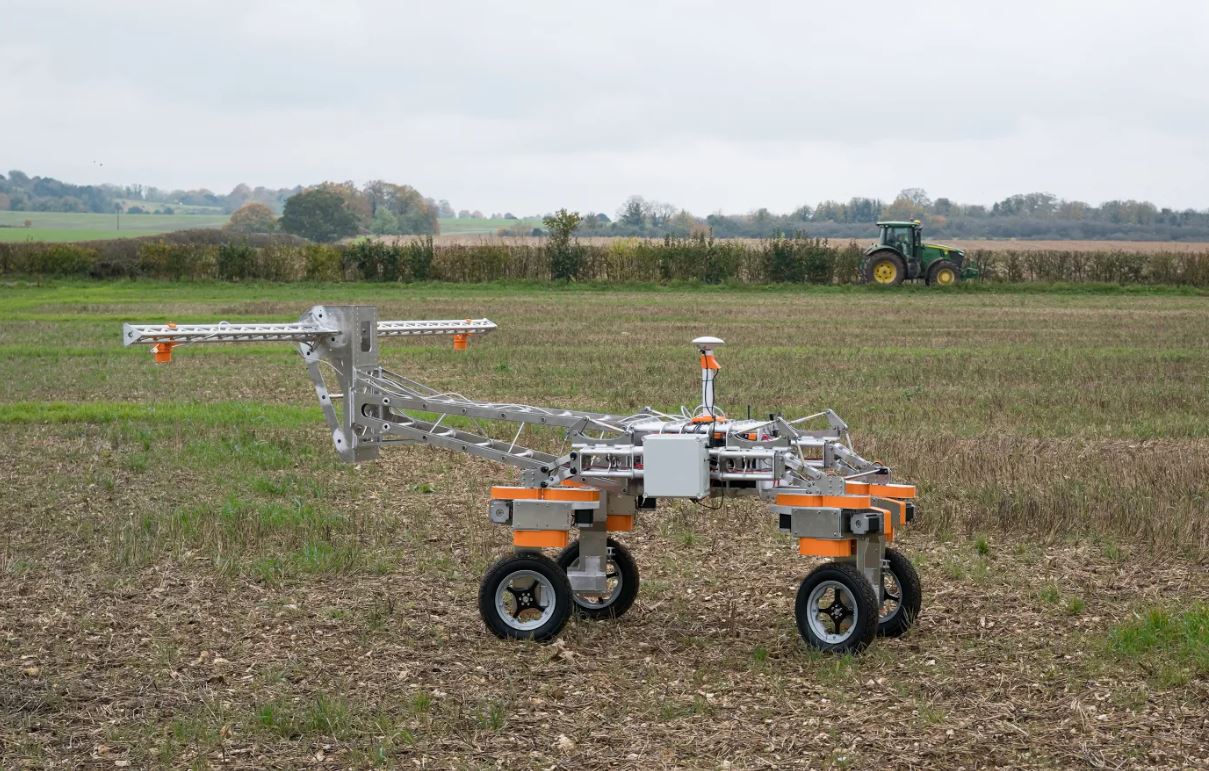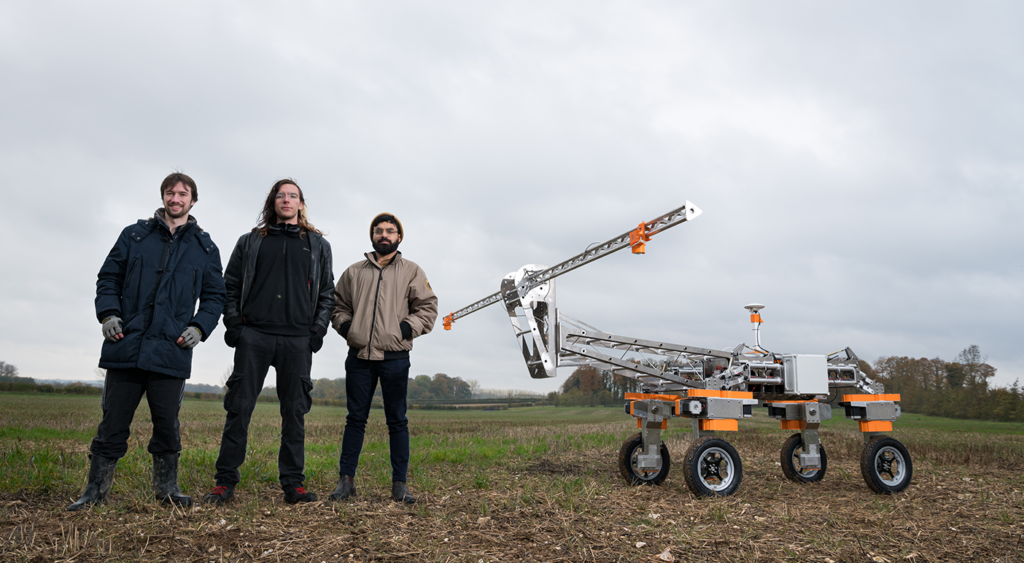If farmers ever wished for a ‘per plant’ view of their crops then UK based Small Robot Company (SRC) could be the genie in the agricultural lamp. Following their success in 2018 with the IET’s Horizontal Innovation Award (thanks to ‘Harry’ their drilling and planting robot), SRC went on to raise £1.17 million in a crowd funding exercise. 12 months later a commercial weed mapping service is set to roll out at four trial farms.
The robotic monitoring vehicle ’Tom’ will traverse fields with a focus on recognising broad leaved weeds such as thistles, chickweed and fat hen. The information will be fed back to a central computer for analysis, enabling the creation of a weed map for any specific field. Such a map could be used to measure the efficacy of recently applied herbicide sprays and to determine whether spraying is again required.
Andrew Hoad, Partner & Head of Waitrose’s Leckford Estate, which will be taking up the new service, comments: “This technology could be truly ground-breaking and has the potential to shape how we farm in the future. By helping us be more precise and targeted in controlling weeds and managing pests, this next generation of farming robots could in turn help us protect biodiversity on our land and preserve the natural environment for future generations.”

SRC have been developing three robots – Tom (for monitoring plants), Dick (for micro-spraying) and Harry (a digital planter which sows the seeds). Whilst Tom is the first to see a commercial roll-out, one can easily imagine how Dick would naturally follow next – enabling micro-spraying of plants identified by Tom on his weed mapping journey, instead of entire field applications. With broad-leaved weed species like the common poppy, chickweed and mayweed developing resistance to sulfonylurea herbicides and groundsel developing resistance to metribuzin and metamitron these small robots may offer a ‘per plant’ herbicidal solution.
Award winning robot ‘Harry’ is designed to sow directly into the soil without having to plough the entire field. This is much better for the soil as a whole because it doesn’t disrupt the work of earthworms or mycorrhizal fungi, this naturally produces a better growing medium. It also means that soil is not compacted by the heavy machinery which can contribute to problems with drainage and erosion.
SRC hope that their plant by plant focused robots and associated technology will help to reduce costs for farmers, whilst also boosting sustainability for agriculture in conjunction with improved environmental benefits.



